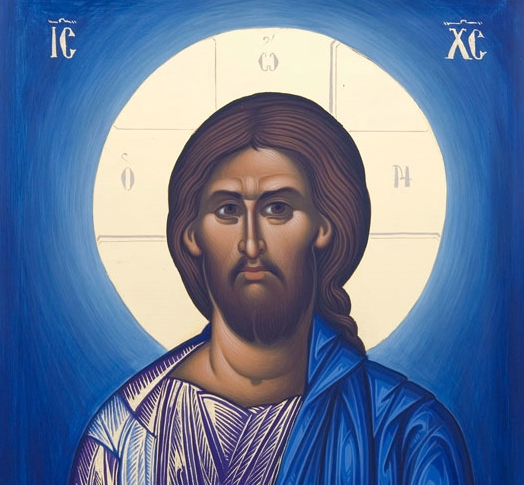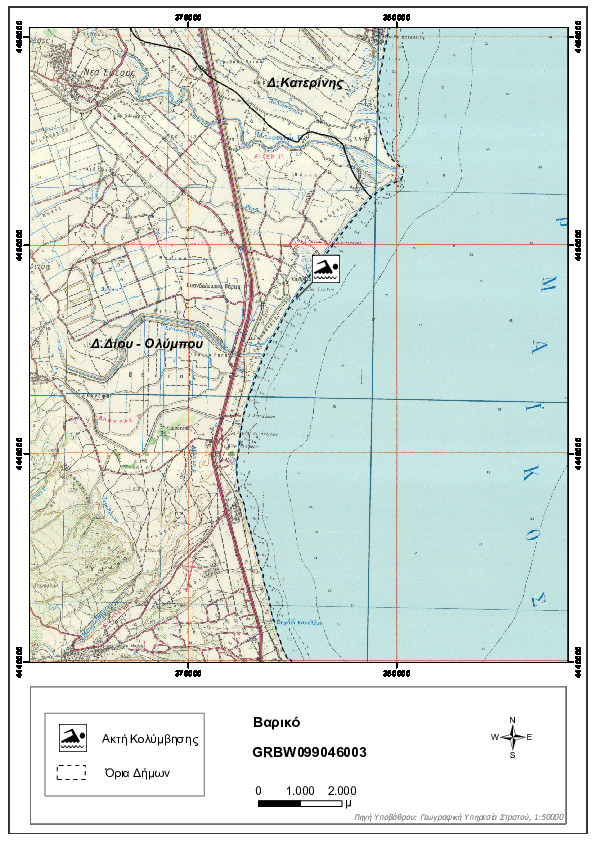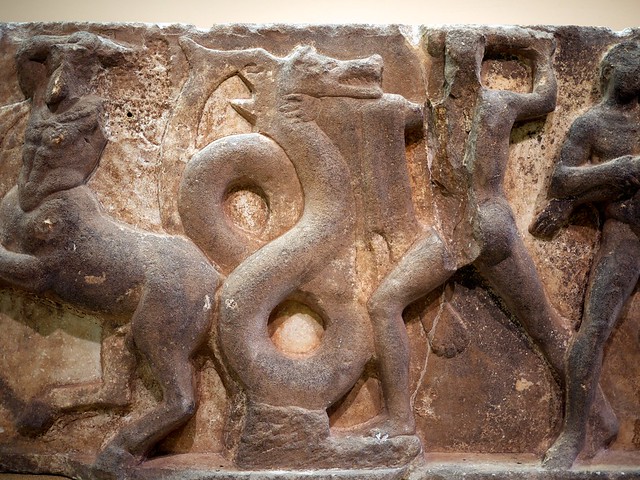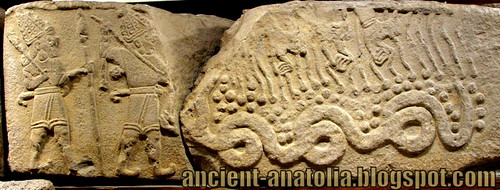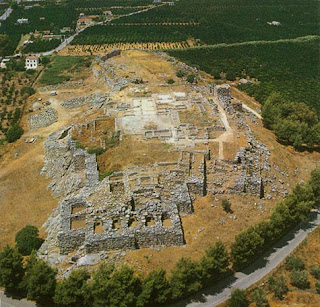L
LAB
Guest
At least you started to understand, Lab
and again you are wrong Why? cause you are possesed and have mania with your Ideas,but you keep your agenda to prove what? that Ancient Greeks spoke Albanian?
Try explain unigue wordslike ΓΑΙΑ ΑΡΙΣΤΟΓΕΙΤΩΝ ΠΡΟΛΕΜΑΙΟΣ ΑΓΑΜΕΜΝΩΝΟ ΜΗΡΟΣ ΟΔΥΣΣΕΑΣ
AMΑΛΘΕΙΑ FROM ΜΑΛΘΩΣΙΣ = soft, from solid to liquid, lack of correct situation, lack of stability.Α is the negative A Μαλθος = soft and LackΑΜΑΛΘΕΙΑ = NON LACK OF SOMETHING
keep bombing us with your AGENDA THAT GREEK SPRUNG FROM ALBANIAN.
no need to reply more,cause also D-->Δ not only D-->Θ
So DIO DEUS in GREEK is ΔΙΑΣ
So Δημητρα = ΓΑ + ΜΗΤΗΡ ALL GREEK WORDS ΓΑΙΑ + ΜΗΤΗΡ = ΓΗ ΜΗΤΗΡ = ΔΗΜΗΤΗΡ
BUT ΓΑ is Also ΔΑ see ΕΔΑΦΟΣ, see ΕΔΩ
SO ANOTHER PURE GREEK WORD
EVEN IN ALBANIAN UNIVERSITIES THEY DO NOT TEACH SUCH
Lets see what you write
The Latins also took the terms from the Pelasgians and added us to de, creating de-us which changed to Zeus. And, besides “the mother” was also born “Zeus, father of men and gods”, in line with the concept “earth, mother of all” (as inferred in Diodorus passage). Pausania makes the connection even clearer:
DO YOU KNOW THE PELASGIAN LANGUAGE?
AND IF IE is DIO DEUS ΔΙΑΣ HOW COME ALBANIAN IS ZONG?
ΖΕΥΣ from ΔΙΙΕΥΣ = ΔΙΑΣ D+J = Z letter is yiota ι but comes from Djot has a silent γ before ι
that is why Ιατρος = Γιατρος Μυια = Μυγα
YOU ARE IGNORANT IN GREEK LANGUAGE.
ALL YOU DO IS TO TAKE THE IE ROOTS OF GREEK LANGUAGETO TELL US WHAT? THAT WE DO NOT SPEAK GREEK
HOAX WHY?cause Greek is IE language and evolute in SOUTH IN BALKANS,
YOUR HOAX IS THAT YOU DENY THE EVOLUTION OF GREEK FROM PROTO-FORMS TO MODERN,
and by Linguistic tricks you want to tell us that ΑΜΑΛΘΕΙΑ IS NOT A GREEK WORD !!!!!!
the funny is that using your method I can easily prove that Greek is Sanskrit, is Avestan, is Slavic
or the oposite, that Greek is the mother language of all IE languages,
come on IE gave many languages some of them were Hellenic, Mycenean, Homeric, Anatolian, that evolute to archaic Greek
PS
I am certain that by reading Homer you will find more common words with Albanian than reading a modern Greek book,
WHYcause Homer is closer to LPIE than modern Greeksame is
if an Iranian reads Homer, or a German, or Indian Sanskrit speaker, or a Slav, or a Celt same
but you are not amazed on how close to LPIE is Homer,and your ignorance on Greek drived you to tell us that Greeks spoke Albanian
and this become possesion, so not to see the truth,the IE coomon ancestry, but you do what?
ancient Greeks spoke Albanian!!!!!!!!oh boy
At least send your work to a university,you might get famous and rich, even NOBEL PRICEinstead of posting it to a blog,and ......
PS2Ακρον is the limit, either start, either end, either top, either down, is the edge, a peak not a body part,but term ακρα to body we mean the edges away from main body (κορμος),
A-------------B both A+B are Ακρα of the line part
end of the word = περας του κοσμου
Limit of the world = οριον του κοσμου
edge of the world = ακρον του κοσμου
edge of the cliff = ακρη του βραχου ακρη του γκρεμου
upper limit (mathematics) = Ανω Ακρον Ανω Οριονfraction
f(x) shows a local upper edge, a peak = τοπικο ΑΚΡΟταττο
if all body parts in Albanian starts from K and no need to reject it, since I am not an Albanian speaker
then also Armenian head ghekavar and Avestan-Iranian head starts from K if remember correct and Deutsch Kopf, and Slavic Glava (K->G) comes from Albanian?
do'nt you think? the answer is NO
they all come from PIE, Proto-Indo-European language
SO to END
I do not know if your posts here are your work personally,or you found them somewhere else,
BUT
1rst) if they were correct then surely the writer would gain the Nombel pice, and All Academic circles would start to search his way?
2nd) why are not teched in universities all over the world?
the last the more friendly effort to make you see, the Hoax
and I commit to you that many times myshelf also felt in this trap
now if it is your work, all you have to do is send them to a university and publish it to a scientic magazine.
if it is not? stop believing it, it is a Hoax.
I can easily explain all European names and toponymes etc etc with Greek which is the richest IE language of the world,and is not me who tell this, all linguists say so,
and say Greek is mother of all languages,many do so in Greece, but I would be wrong, same is the theories you post,
that all parts of body start from K in Albanian, possibly a reason Albanians did so, and I do not know why
but considering Greek Kara and Kranio (the head bones) and Κεφαλη - Κεβαλη, with for example Slavic glava, then I conclude what? that ancient Greek spoke Slavic?
come on.
all modern languages are evolution of older forms, proto-forms,and all proto-forms are evolution of LPIE.
so yes the name word ZEUS (Dijeus) and ΔΙΑΣ are Greek, (as DEUS is Latin, and sprunk from older common forms of IE,)
cause they sprunk from proto-Greek forms and proto Greek sprunk from late proto Indo-European,
same is Latin, etc etcso
when Homer writes Θετις for the sea Nymph/deity , it means the evolution was already done,
First of all let's make something clear,
I believe that suggesting and arguing means productivity, in everything not only in linguistics,
So i hope what we're going to have from a thread like this is exactly that,
we're two neighbour countries and we both have unique languages, (I do speak Greek) so that should be something to unite and not separate.
But that doesn't happens from your (Greek) side only because of political issues of the past, Albania and Greece are still in war officially and it's something that Greek side keeps avoiding to speak about.
I have my own opinion about the language evolution and i'm not hiding from it as you see, of course it's not something that i personally noticed, there are lots of authors who published (and keep publishing) books that study Albanian language not in the same way as we're used to study the rest I.E languages, i think that comes from the fact that Albanian has short monosyllabic root-words that by adding only 1 more letter to them you have a new word,
e.x
'' ushte '' - '' spear '' - '' δόρυ ''
'' ushtri '' - '' army '' - '' στρατός ''
'' ushtar '' - '' soldier '' - '' στρατιώτης''
'' ushtrim '' - '' excercise '' - '' ασκησις ''
'' kushtrim '' - '' war cry '' - '' πολεμικη κραυγη ''
'' trim '' - '' brave '' - '' γενναιος ''
and the new word that you create it has a close meaning with the first one, it is like even a single letter it's important because the words are connected with each other like they're not made up randomly but it's like someone structured them by this way,
that's why there are so many authors claiming that Albanian is the oldest language or god knows what else, because it can be studied in a different way ( more simple ) than the way of I.E theory studies the languages.
I'm only mentioning it so you can understand that these claims are based somewhere and they're not nationalistic fairy tales.
I'm not going to do etymologies on these words because i know what i'm going to hear, not only from you but even from Albanians of this forum, although if you want a clue just take the Alb. word 'udhë' (journey) as a potential root for the name 'Odysseus' (who's history matches with the meaning of the word udhë)
and also apart from the fact that Albanian is different than the rest I.E's let's see who lived in ancient Greece,
of course not Albanians, the term didn't existed that time
Historians that mention Pelasgians are these
Ησίοδος, Όμηρος, Έφορος, Στράβων, Σκύμνος, Ηρόδοτος, Μενεκράτης, Παυσανίας, Θουκυδίδης, Ευριπίδης, Αισχύλος, Διονύσιος ο Αλικαρνασσεύς, Αντικλείδης, Πλάτων.
Herodotus (lived between 4-5th century b.c)
“ἥντινα δὲ γλῶσσαν ἵεσαν οἱ Πελασγοί, οὐκ ἔχω ἀτρεκέως εἰπεῖν… ἦσαν οἱ Πελασγοὶ βάρβαρον γλῶσσαν ἱέντες”
[What language however the Pelasgians used to speak I am not able with certainty to say… the Pelasgians used to speak a Barbarian language]
“… τοῖσι νῦν ἔτι ἐοῦσι Πελασγῶν τῶν ὑπὲρ Τυρσηνῶν Κρηστῶνα πόλιν οἰκεόντων, οἳ ὅμουροι κοτὲ ἦσαν τοῖσι νῦν Δωριεῦσι καλεομένοισι (οἴκεον δὲ τηνικαῦτα γῆν τὴν νῦν Θεσσαλιῶτιν καλεομένην), καὶ τῶν Πλακίην τε καὶ Σκυλάκην Πελασγῶν οἰκησάντων ἐν Ἑλλησπόντῳ, οἳ σύνοικοι ἐγένοντο Ἀθηναίοισι, καὶ ὅσα ἄλλα Πελασγικὰ ἐόντα πολίσματα τὸ οὔνομα μετέβαλε· …εἰ τοίνυν ἦν καὶ πᾶν τοιοῦτο τὸ Πελασγικόν, τὸ Ἀττικὸν ἔθνος ἐὸν Πελασγικὸν ἅμα τῇ μεταβολῇ τῇ ἐς Ἕλληνας καὶ τὴν γλῶσσαν μετέμαθε. καὶ γὰρ δὴ οὔτε οἱ Κρηστωνιῆται οὐδαμοῖσι τῶν νῦν σφέας περιοικεόντων εἰσὶ ὁμόγλωσσοι οὔτε οἱ Πλακιηνοί, σφίσι δὲ ὁμόγλωσσοι· δηλοῦσί τε ὅτι τὸν ἠνείκαντο γλώσσης χαρακτῆρα μεταβαίνοντες ἐς ταῦτα τὰ χωρία, τοῦτον ἔχουσι ἐν φυλακῇ.”
[… judging by those that still remain of the Pelasgians who dwelt in the city of Creston above the Tyrsenians, and who were once neighbours of the race now called Dorian, dwelling then in the land which is now called Thessaliotis, and also by those that remain of the Pelasgians who settled at Plakia and Skylake in the region of the Hellespont, who before that had been settlers with the Athenians, and of the natives of the various other towns which are really Pelasgian, though they have lost the name…. If therefore all the Pelasgian race was such as these, then the Attic race, being Pelasgian, at the same time when it changed and became Hellenic, unlearnt also its language. For the people of Creston do not speak the same language with any of those who dwell about them, nor yet do the people of Plakia, but they speak the same language one as the other: and by this it is proved that they still keep unchanged the form of language which they brought with them when they migrated to these places.]
Homer (lived or didn't existed at all, between 7-10th century b.c)
“Ζεῦ ἄνα Δωδωναῖε Πελασγικὲ τηλόθι ναίων”
[Pelasgians Dodonæan Zeus supreme]
ἄλλη δ᾽ ἄλλων γλῶσσα μεμιγμένη· ἐν μὲν Ἀχαιοί,
ἐν δ᾽ Ἐτεόκρητες μεγαλήτορες, ἐν δὲ Κύδωνες,
Δωριέες τε τριχάϊκες δῖοί τε Πελασγοί.
[Diverse their language is; Achaians some,
And some indigenous are; Cydonians there,
Crest-shaking Dorians, and Pelasgians dwell.]
“Ἱππόθοος δ᾽ ἄγε φῦλα Πελασγῶν ἐγχεσιμώρων
τῶν οἳ Λάρισαν ἐριβώλακα ναιετάασκον·”
[Hypothecs from Larissa, for her soil
Far-famed, the spear-expert Pelasgians brought.]
But Dionysius of Halicarnassus clearly states that Pelasgians are Hellenes, around 60 Bc - 7 Bc ~
so that shows that indeed Pelasgians were Hellenized eventually, but before 4th century B.c it's clear that they were still speaking a barbarian language for Greeks, and as we can see they lived from Crete to Lemnos, and from Samothraki to Epirus while Dodona was called as their center.
i don't know a Greek linguist who is sure about the Greek origin of the mythological god's, goddess's, names.
everyone is giving a possible explanation because that's their job to try and explain names-words etc. but all of them they also mention that possibly there's a pre-Greek origin of the names.
Z.Kopidakis in his book 'The history of Greek language' says that Greek has based it's creation on a brunch of a I.E language.



